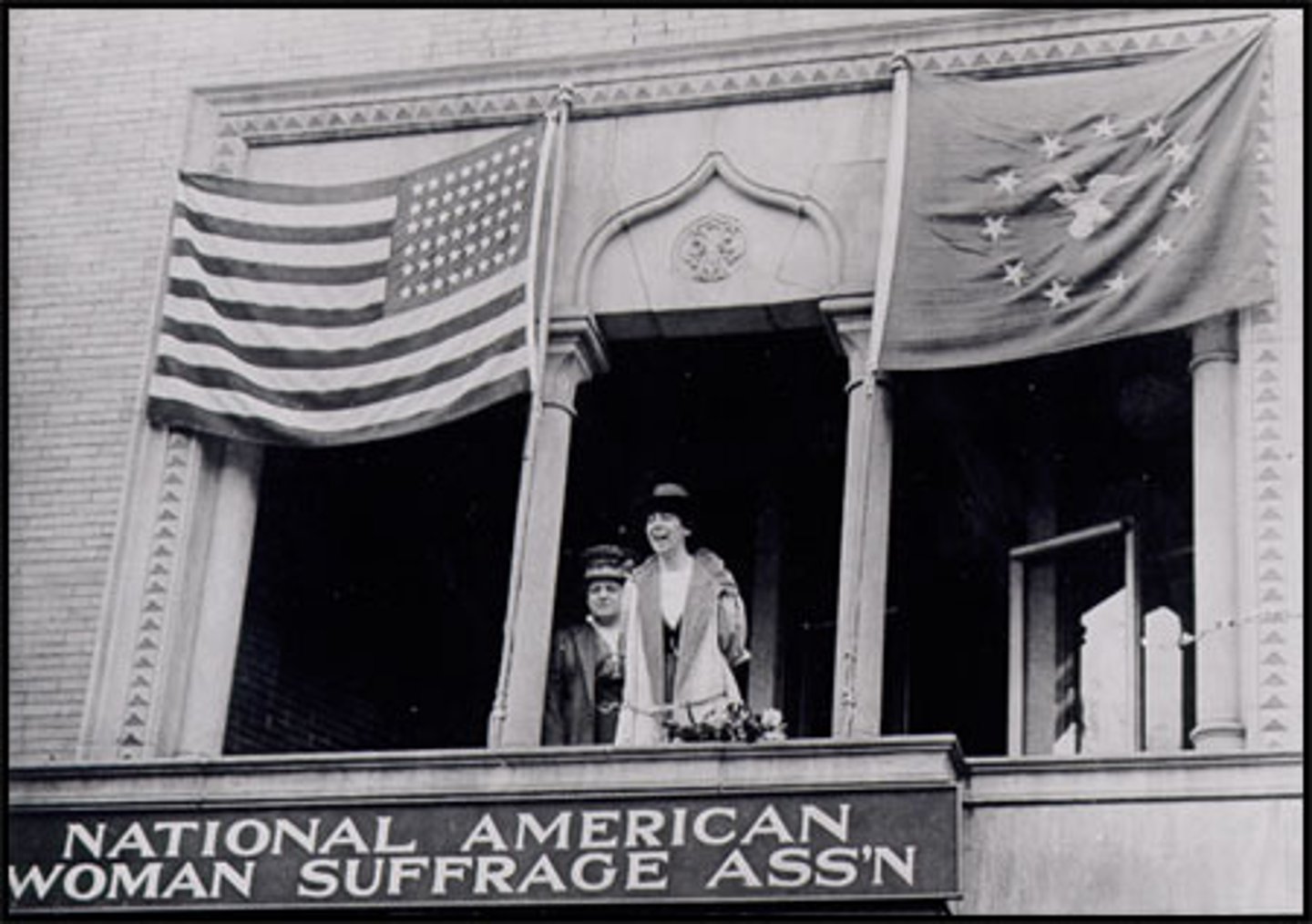APUSH Period 4 Review
1/69
There's no tags or description
Looks like no tags are added yet.
Name | Mastery | Learn | Test | Matching | Spaced |
|---|
No study sessions yet.
70 Terms
Louisiana Purchase
1803 purchase of the Louisiana territory from France. Made by Jefferson, this doubled the size of the US.
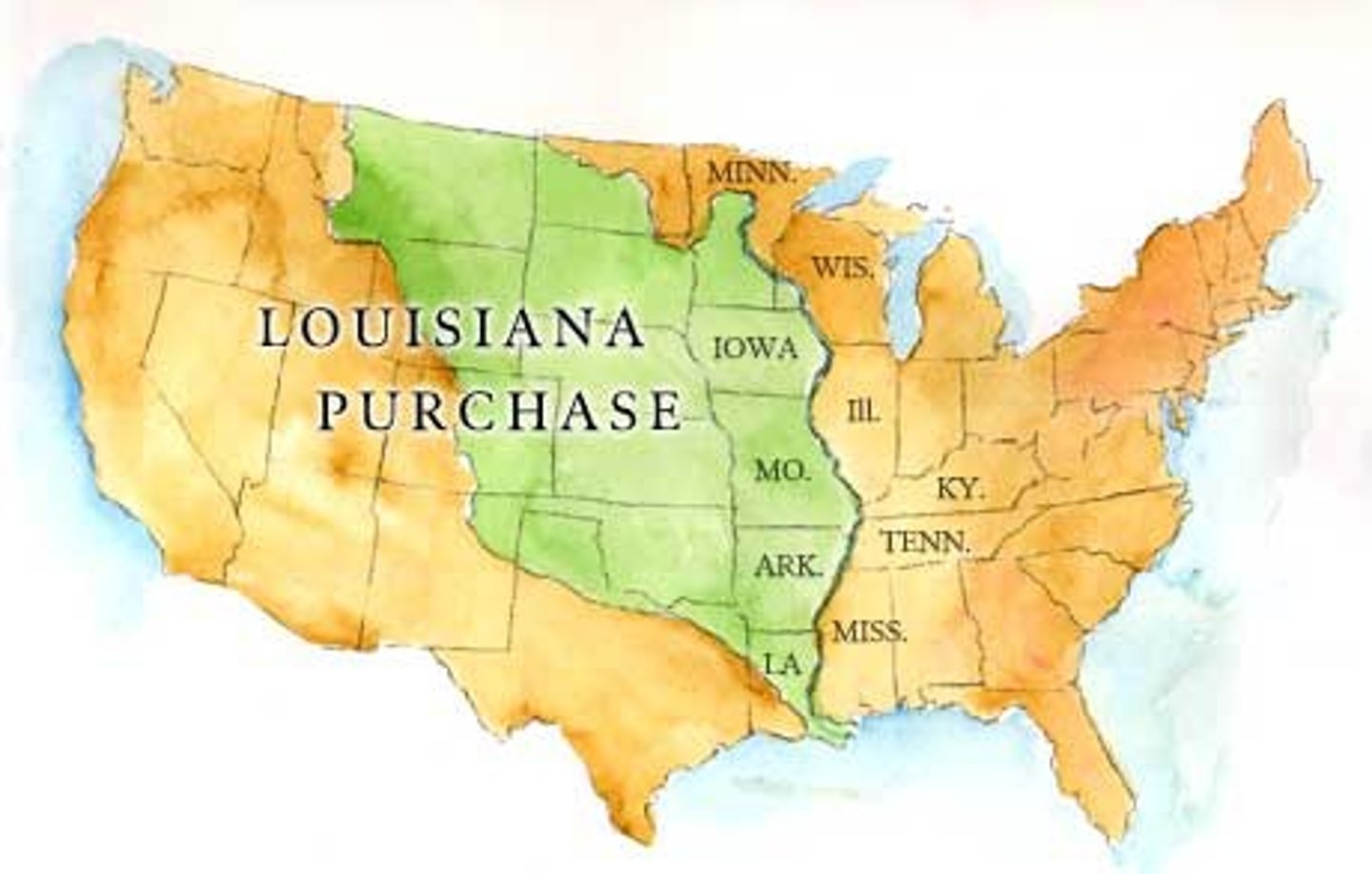
Lewis and Clark Expedition
Jefferson sent them out to explore the newly acquired Louisiana Territory; the explored as far west as the Pacific Ocean (guide Sacagewa)
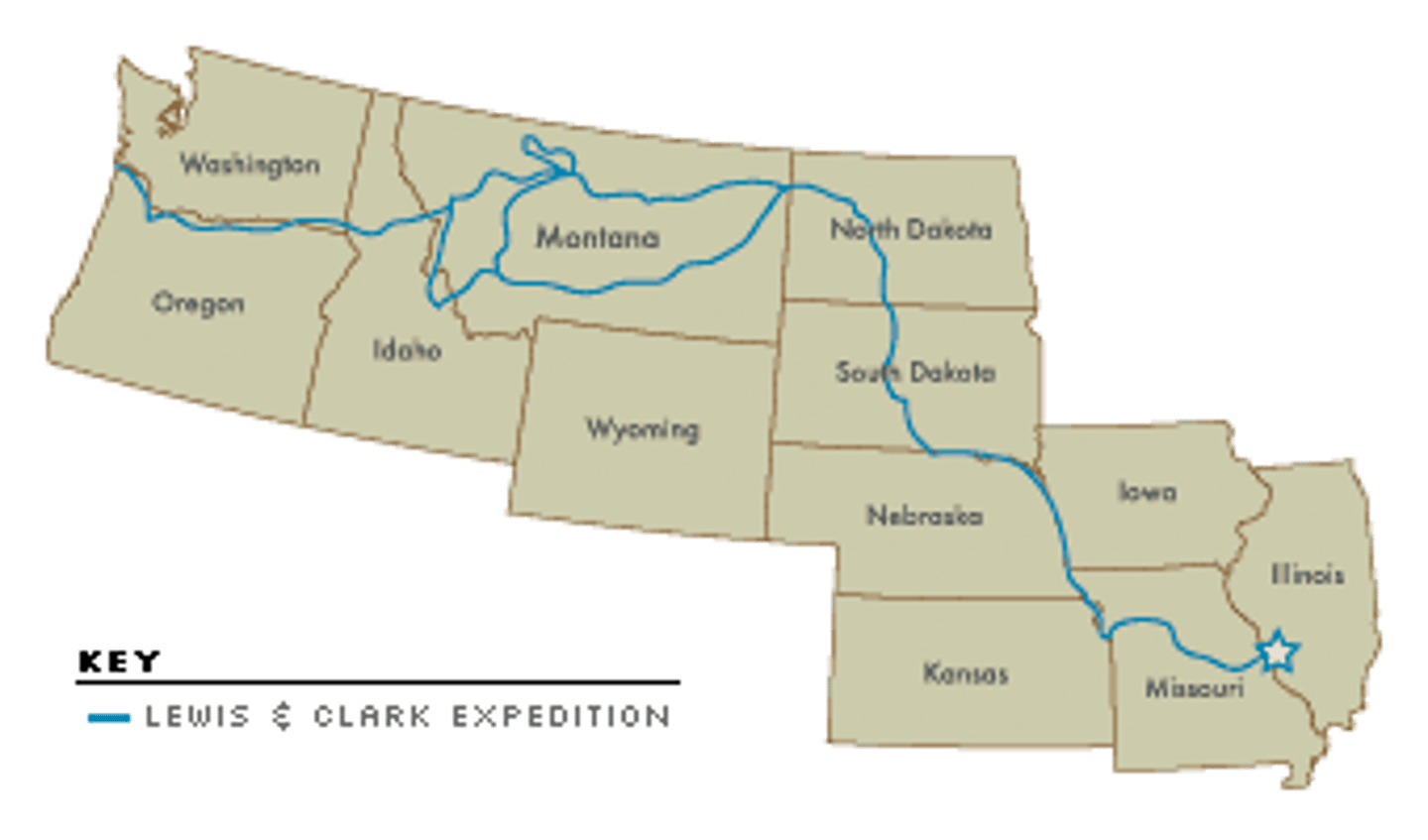
Marbury v. Madison
This case establishes the Supreme Court's power of Judicial Review
Judicial Review
Allows the court to determine the constitutionality of laws
Aaron Burr
served as the 3rd Vice President of the United States. Member of the Republicans and President of the Senate during his Vice Presidency. He was defamed by the press, often by writings of Hamilton. Challenged Hamilton to a duel in 1804 and killed him.
Embargo Act 1807
Act passed by Congress forbidding the exportation of American goods. Originally aimed to hurt Britain and Frances' economies, however ended up hurting the U.S.'s more. It was repealed in March 1809.
Non intercourse Act 1809
Created by Madison provided Americans could trade with all nations except Britain and France
War of 1812
A war between the U.S. and Great Britain caused by American outrage over the impressment of American sailors by the British, the British seizure of American ships, and British aid to the Indians attacking the Americans on the western frontier.
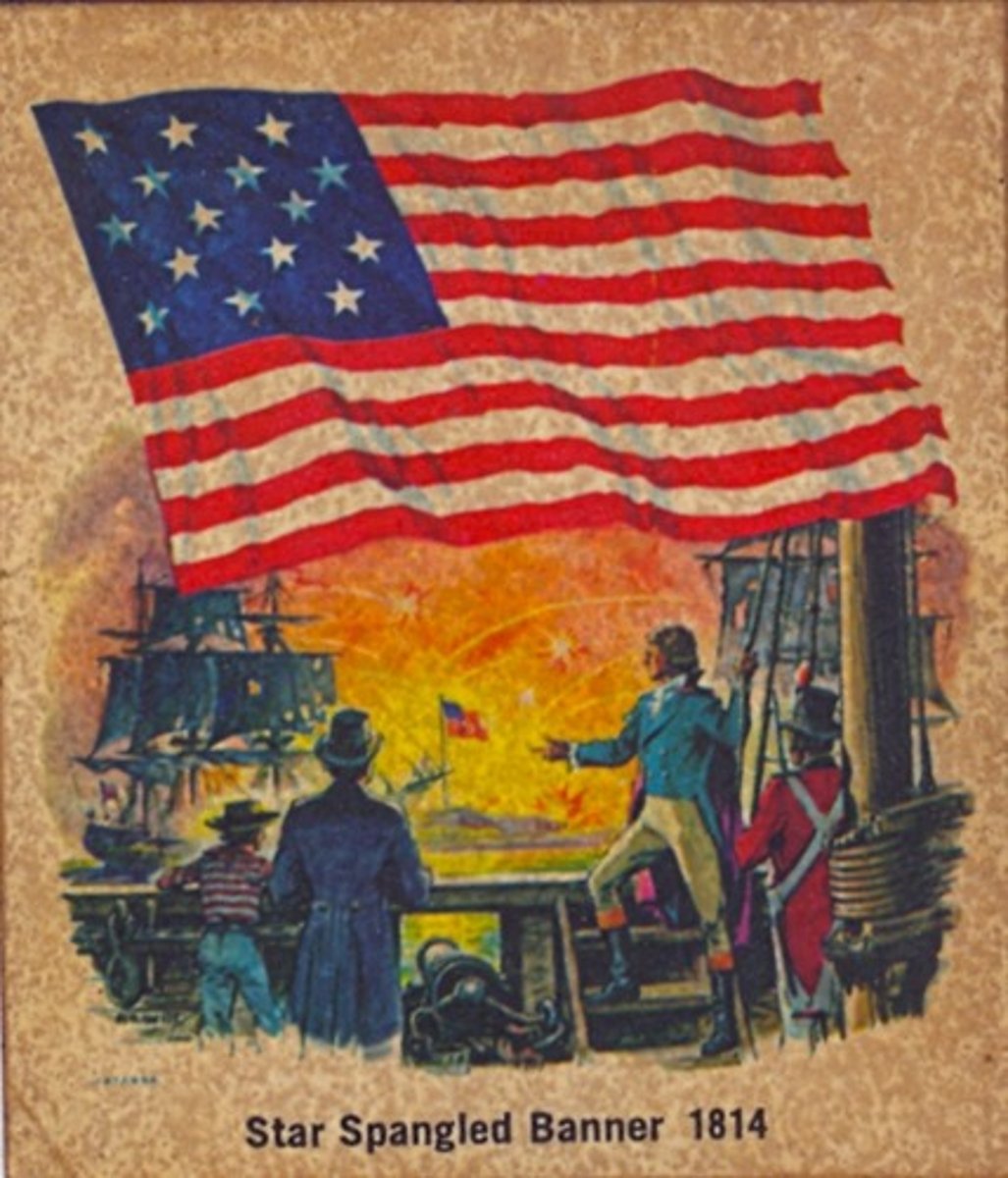
impressment
British practice of taking American sailors and forcing them into military service
Treaty of Ghent
December 24, 1814 - Ended the War of 1812 and restored the status quo. For the most part, territory captured in the war was returned to the original owner. It also set up a commission to determine the disputed Canada/U.S. border.
Hartford Convention
Meeting of Federalists near the end of the War of 1812 in which the party listed it's complaints against the ruling Republican Party. These actions were largley viewed as traitorous to the country and lost the Federalist much influence
Tecumseh
a famous chief of the Shawnee who tried to unite Indian tribes against the increasing white settlement (1768-1813)
William Henry Harrison
(1841), was an American military leader, politician, the ninth President of the United States, and the first President to die in office. His death created a brief Constitutional crisis, but ultimately resolved many questions about presidential succession left unanswered by the Constitution until passage of the 25th Amendment. Led US forces in the Battle of Tippecanoe.
Battle of Tippecanoe
Battle between Americans and Native Americans. Tecumseh and the Prophet attempted to oppress white settlement in the West, but defeated by William Henry Harrison. Led to talk of Canadian invasion and served as a cause to the War of 1812.
Old Ironsides
The nickname for the U.S. warship, Constitution who raied American morale by defeating and sinking a British ship off the coast of Nova Scotia.
Andrew Jackson
(1829-1833) and (1833-1837), Indian removal act, nullification crisis, Old Hickory," first southern/ western president," President for the common man," pet banks, spoils system, specie circular, trail of tears.
Battle of New Orleans
Jackson led a battle that occurred when British troops attacked U.S. soldiers in New Orleans on January 8, 1815; the War of 1812 had officially ended with the signing of the Treaty of Ghent in December, 1814, but word had not yet reached the U.S.
Francis Scott Key
wrote the Star Spangled Banner
Era of Good Feelings
A name for President Monroe's two terms, a period of strong nationalism, economic growth, and territorial expansion. Since the Federalist party dissolved after the War of 1812, there was only one political party and no partisan conflicts.
James Monroe
(1817-1821) and (1821-1825) The Missouri Compromise in 1821., the fifth President of the United States (1817-1825).His administration was marked by the acquisition of Florida (1819); the Missouri Compromise (1820), in which Missouri was declared a slave state; and the profession of the Monroe Doctrine (1823), declaring U.S. opposition to European interference in the Americas
Henry Clay
Distinguished senator from Kentucky, who ran for president five times until his death in 1852. He was a strong supporter of the American System, a war hawk for the War of 1812, Speaker of the House of Representatives, and known as "The Great Compromiser." (responsible for the Missouri Compromise). Outlined the Compromise of 1850 with five main points. Died before it was passed however.
American System
Economic program advanced by Henry Clay that included support for a national bank, high tariffs, and internal improvements; emphasized strong role for federal government in the economy.
Whig Party
An American political party formed in the 1830s to oppose President Andrew Jackson and the Democrats, stood for protective tariffs, national banking, and federal aid for internal improvements
Democratic Republican Party
Led by Thomas Jefferson, believed people should have political power, favored strong STATE governments, emphasized agriculture, strict interpretation of the Constitution, pro-French, opposed National Bank
Fletcher v. Peck
Supreme Court case which protected property rights and asserted the right to invalidate state laws in conflict with the Constitution
McCulloch v. Maryland
Maryland was trying to tax the national bank and Supreme Court ruled that federal law was stronger than the state law
Gibbons v. Ogden
Commerce clause case (1824). Decision greatly enlarged Congress' interstate commerce clause power by broadly defining the meaning of "commerce" to include virtually all types of economic activity.
Missouri Compromise
"Compromise of 1820" over the issue of slavery in Missouri. It was decided Missouri entered as a slave state and Maine entered as a free state and all states North of the 36th parallel were free states and all South were slave states.
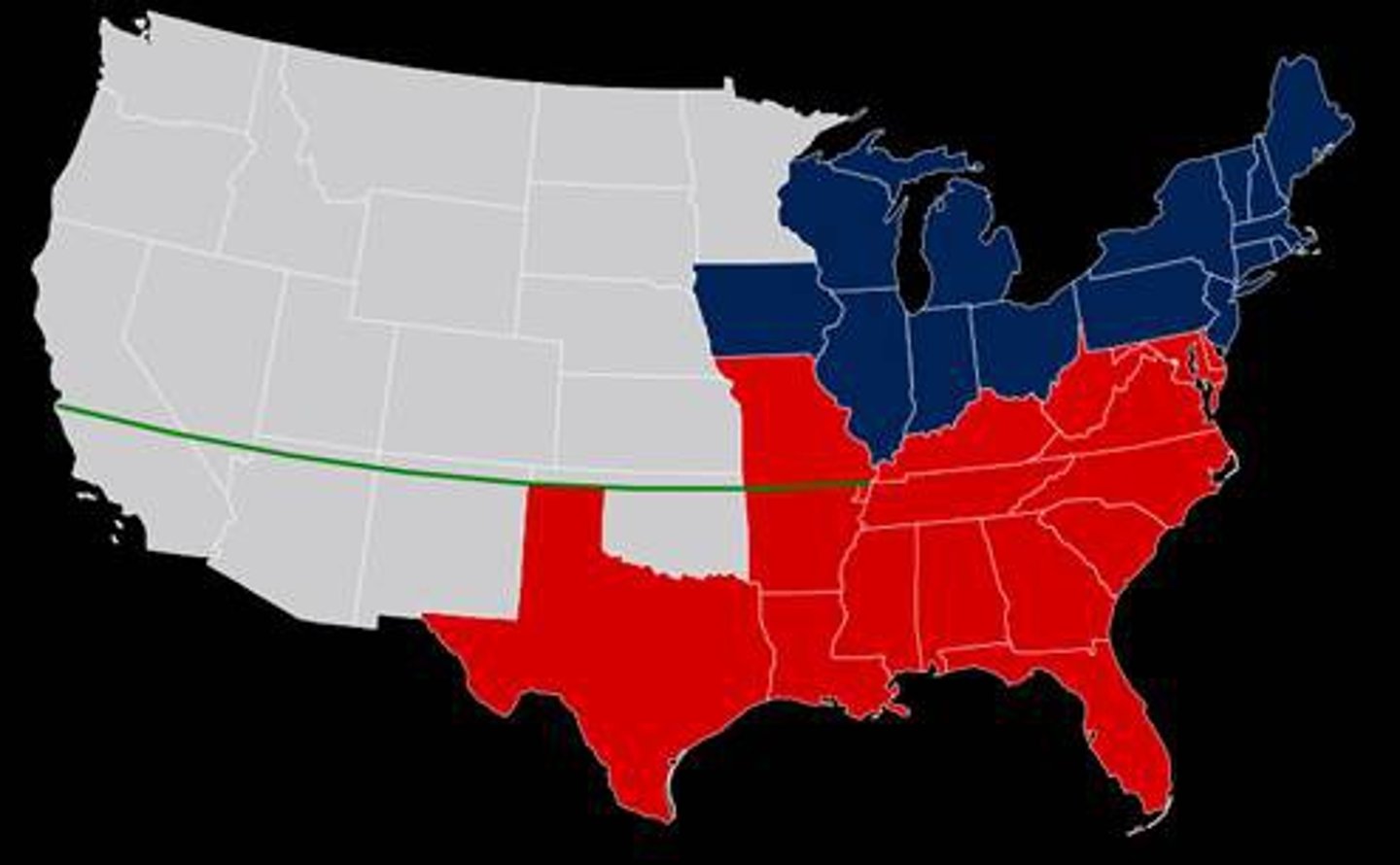
Adams-Onis Treaty
Agreement in which Spain gave up all of Florida to the United States
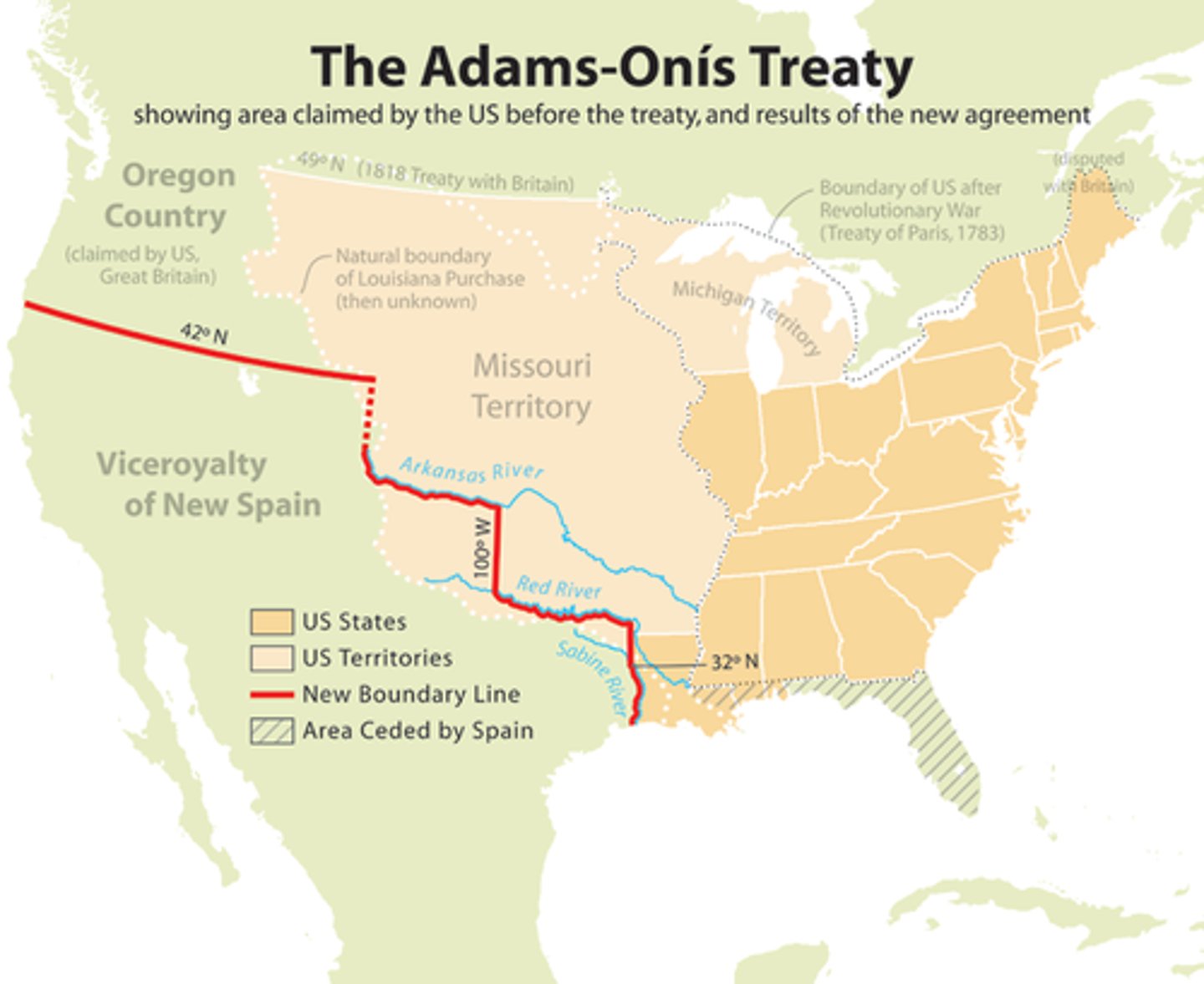
Cotton Gin
A machine for cleaning the seeds from cotton fibers, invented by Eli Whitney in 1793
Market Revolution
Drastic changes in transportation (canals, RRs), communication (telegraph), and the production of goods (more in factories as opposed to houses)
Erie Canal
In NY in 1825 linked the economies of western farms and eastern cities. Stimulated economic growth, lowered food prices in the East
sectionalism
Different parts of the country developing unique and separate cultures (as the North, South and West). This can lead to conflict.
2nd Bank of the United States
The 2nd B.U.S. was a federal establishment operated by the government as an attempt to save the welfare of the economy after the War of 1812. It was part of Henry Clay's American System and forced state banks to call in their loans which led to foreclosures and the Panic of 1819.
Cumberland Gap
natural pass in Appalachian mountains that allowed settlers to travel west
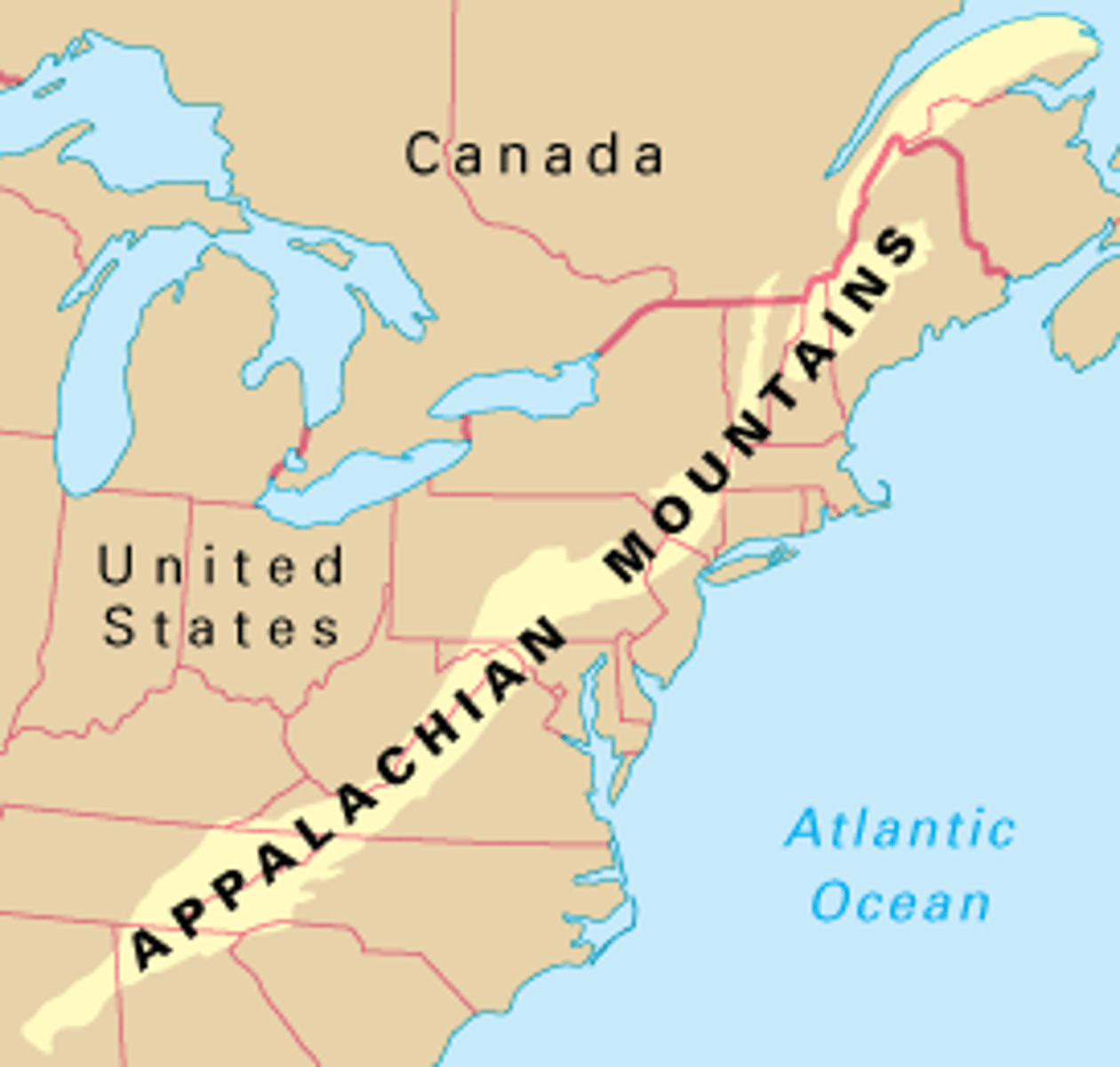
Lowell Mill
it was a weaving mill opened where new technology and methods were used that employ mostly young women in the early 19th century
nativist
a person who favors those born in his country and is opposed to immigrants
King Cotton
Expression used by Southern authors and orators before Civil War to indicate economic dominance of Southern cotton industry, and that North needed South's cotton. Coined by James Hammond
Peculiar Institution
Widely used term for the institution of American slavery in the South. Its use in the first half of the 19th century reflected a growing division between the North, where slavery was gradually abolished, and the South, where slavery became increasingly entrenched.
Know-Nothing Party
Secret Nativist political party that opposed Immigration during the 1840's and early 1850's. Officially called the American Party
Indian Removal
(1830) Signed by President Andrew Jackson, the law permitted the negotiation of treaties to obtain the Indians' lands in exchange for their relocation to what would become Oklahoma.
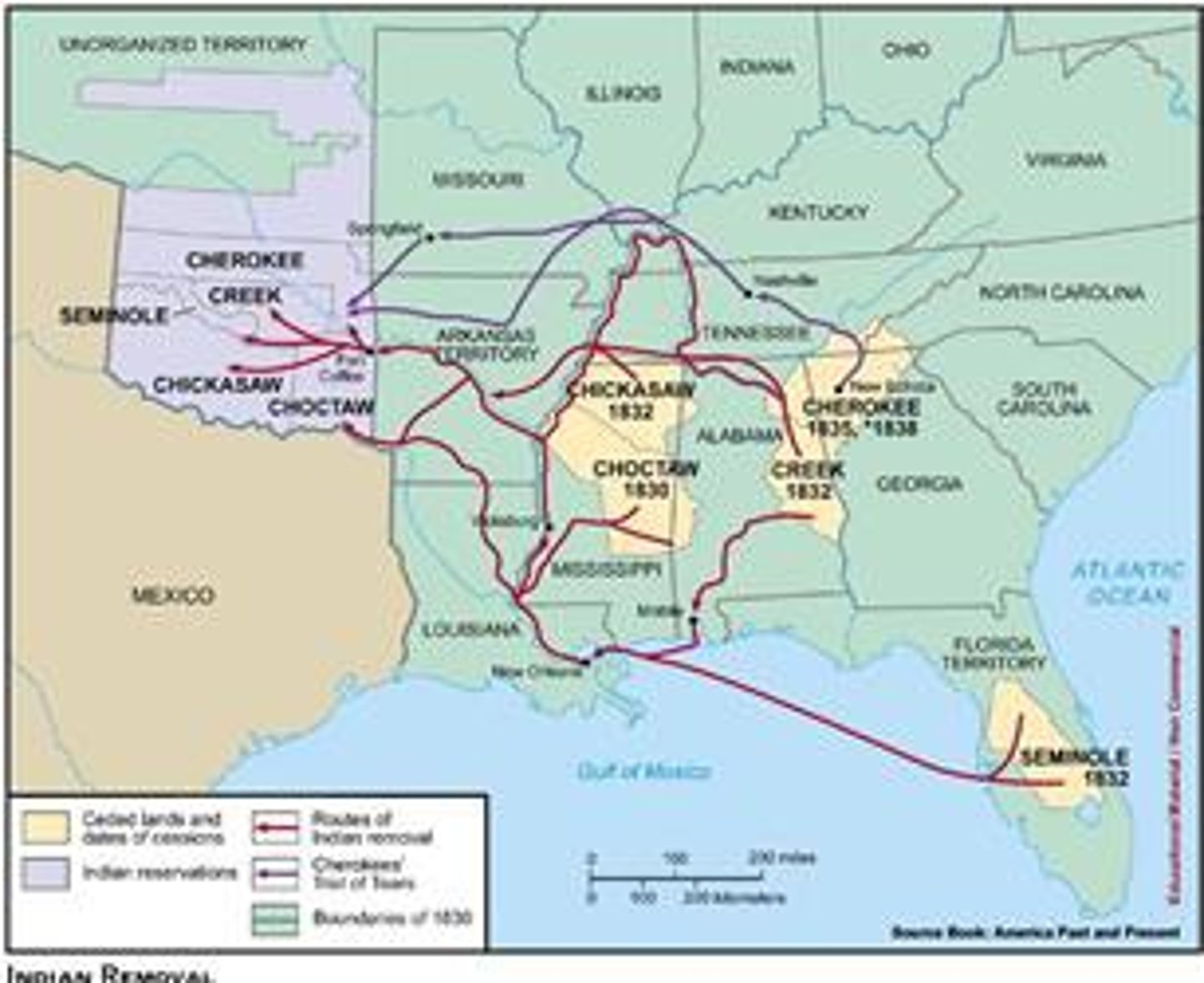
Tammany Hall
a political organization within the Democratic Party in New York city (late 1800's and early 1900's) seeking political control by corruption and bossism
Nat Turner Rebellion
Nat Turner, and overseer, minister, and slave, had a divine call and revolted, killing families of masters and 35 more whites, Turner and 16 others slaves were hanged; results: stricter laws, creative ways to defend slavery, new period of abolition
slave codes
In 1661 a set of "codes" was made. It denied slaves basic fundamental rights, and gave their owners permission to treat them as they saw fit.
Cyrus McCormick
Invented the mechanical reaper
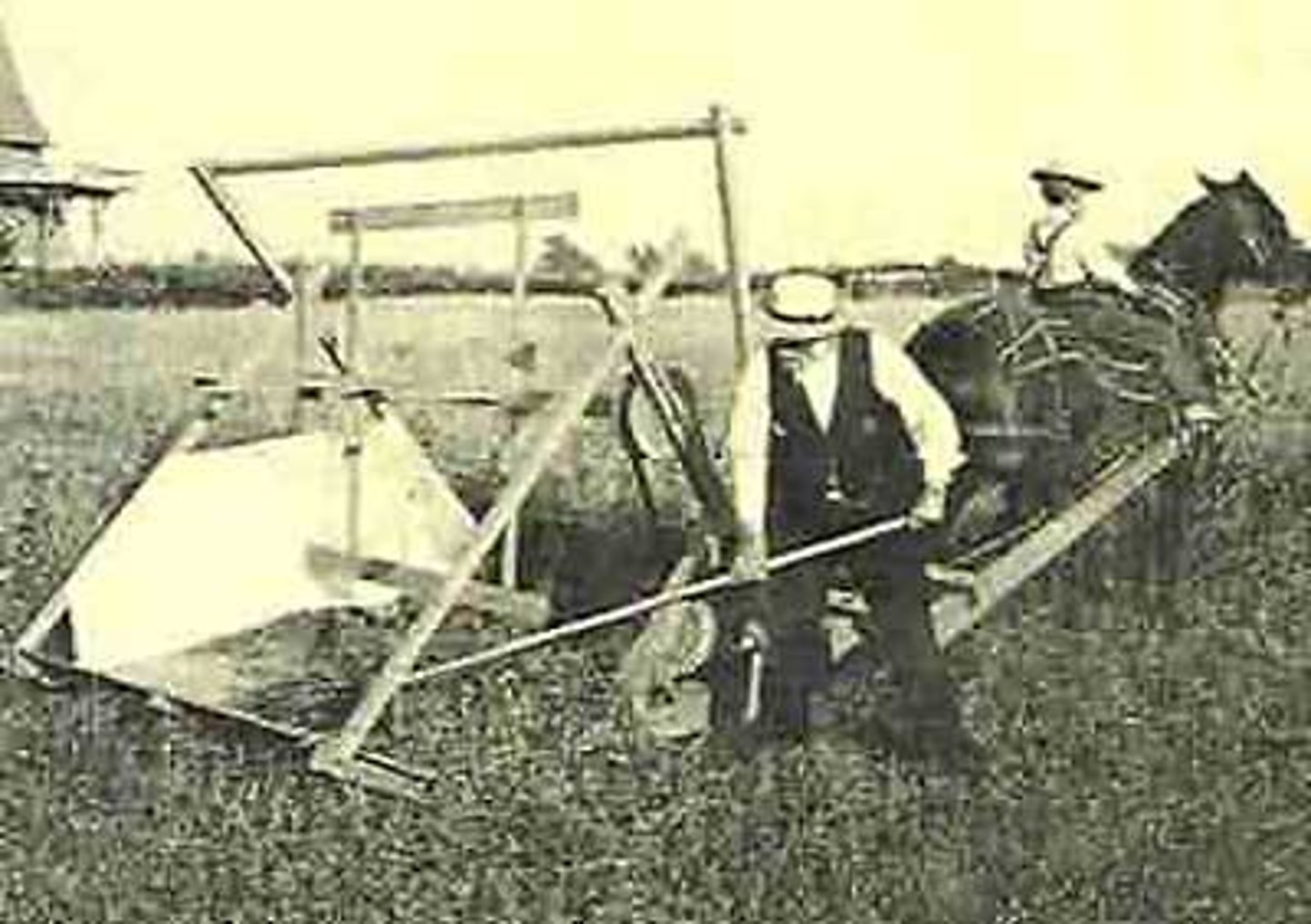
Commonwealth v. Hunt
(1842) a landmark ruling of the MA Supreme Court establishing the legality of labor unions and the legality of union workers striking if an employer hired non-union workers.
Jacksonian Democracy
A policy of spreading more political power to more people. It was a "Common Man" theme.
Spoils System
A system of public employment based on rewarding party loyalists and friends.
Trail of Tears
(1838-39) an 800-mile forced march made by the Cherokee from their homeland in Georgia to Indian Territory; resulted in the deaths of almost one-fourth of the Cherokee people
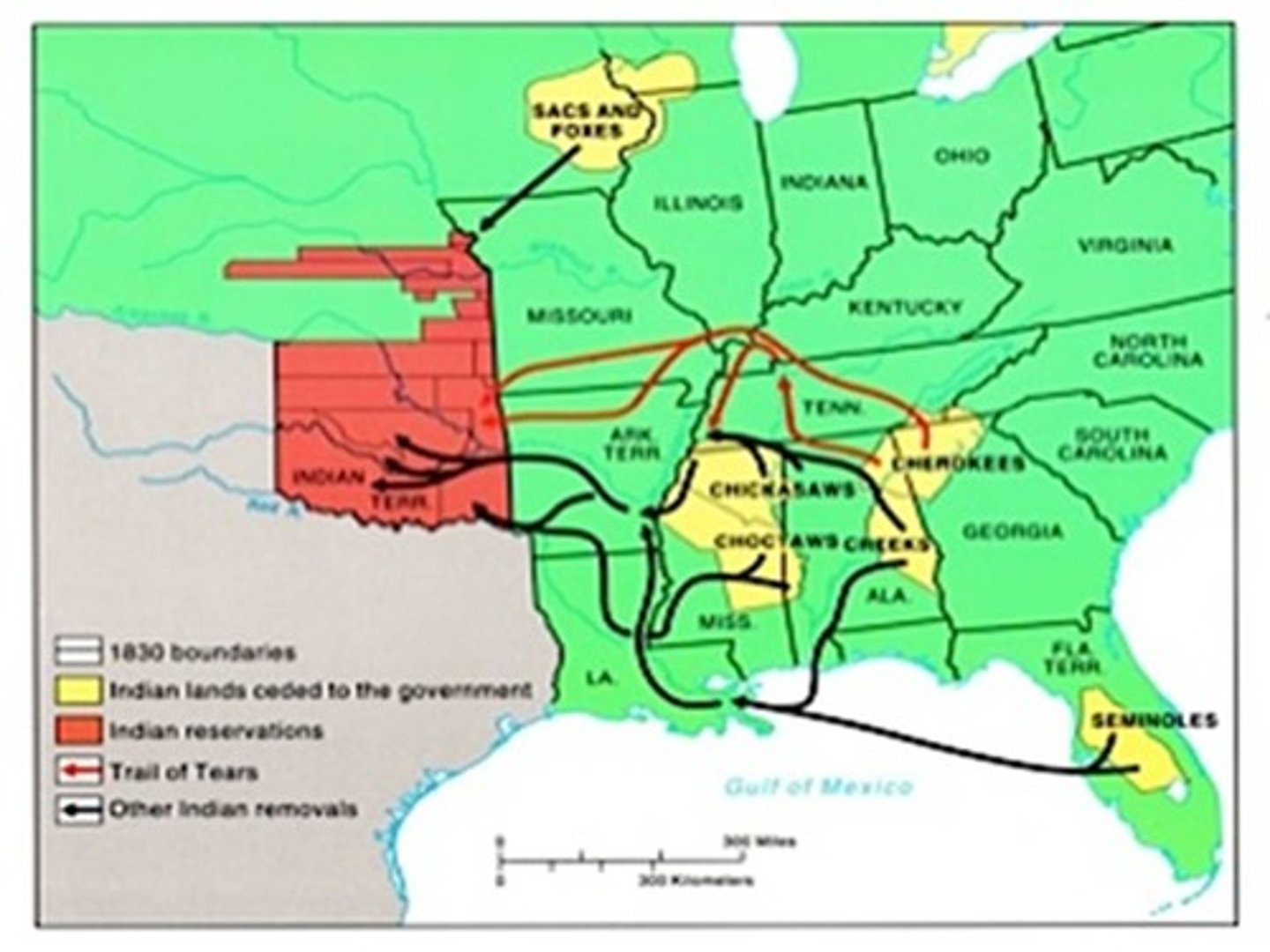
Tariff of Abominations
1828 - Also called Tariff of 1828, it raised the tariff on imported manufactured goods. The tariff protected the North but harmed the South; South said that the tariff was economically discriminatory and unconstitutional because it violated state's rights.
Nullification Crisis
South was mad about the tariffs because it was hurting their economy. John C. Calhoun supported States' Rights and said they had a right to nullify a law. South Carolina passed the Nullification Act, and threatened to secede the union. The tariff was lowered instead of fighting a war.
Pet Banks
State banks where Andrew Jackson placed deposits removed from the federal National Bank.
Species Circular
A United States executive order that was issued by President Andrew Jackson in 1836. This required that government land be paid for in gold and silver.
Martin Van Buren
(1837-1841) Advocated lower tariffs and free trade, and by doing so maintained support of the south for the Democratic party. He succeeded in setting up a system of bonds for the national debt.
2nd Great Awakening
Series of religious revivals starting in 1801, based on methodism and baptism, stressed philosophy of salvation through good deeds and tolerance for protestants. Attracted women, African Americans,and Native Americans
Mormon Migration
The Mormons moved west to escape religious persecution, they settled in Missouri and Illinois but were later persecuted by their neighbors ; decided to move Northwest towards the Great Salt Lake.
Transcendentalists
Believed in Transcendentalism, they included Emerson (who pioneered the movement) and Thoreau. Many of them formed cooperative communities such as Brook Farm and Fruitlands, in which they lived and farmed together with the philosophy as their guide. "They sympathize with each other in the hope that the future will not always be as the past." It was more literary than practical - Brook Farm lasted only from 1841 to 1847.
Temperance
(n) moderation, self-control, esp. regarding alcohol or other desires or pleasures; total abstinence from alcohol
Cult of Domesticity
idealized view of women & home; women, self-less caregiver for children, refuge for husbands
Seneca Falls Convention
(1848) the first national women's rights convention at which the Declaration of Sentiments was written
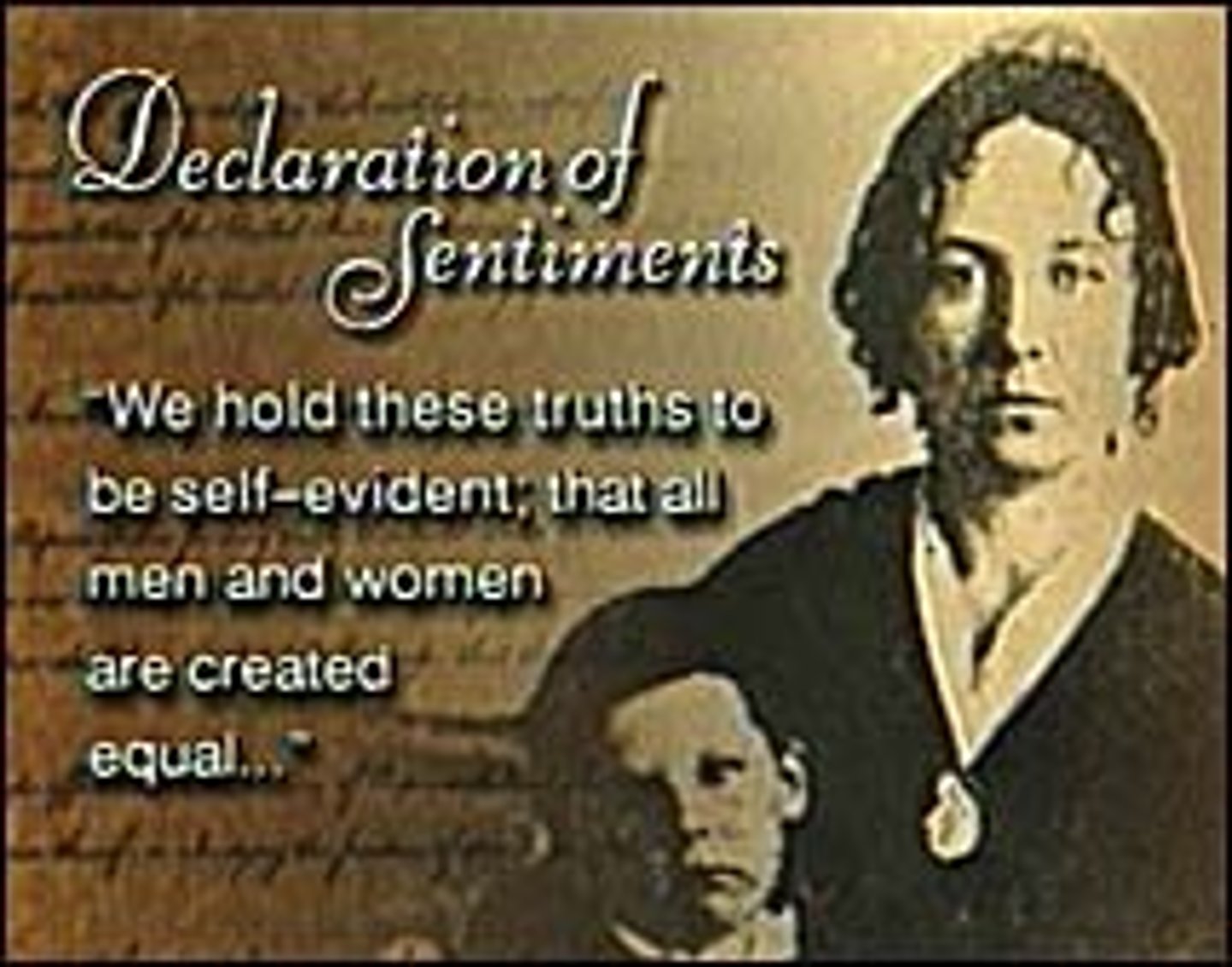
Abolition
The movement to make slavery and the slave trade illegal. Begun by Quakers in England in the 1780s.
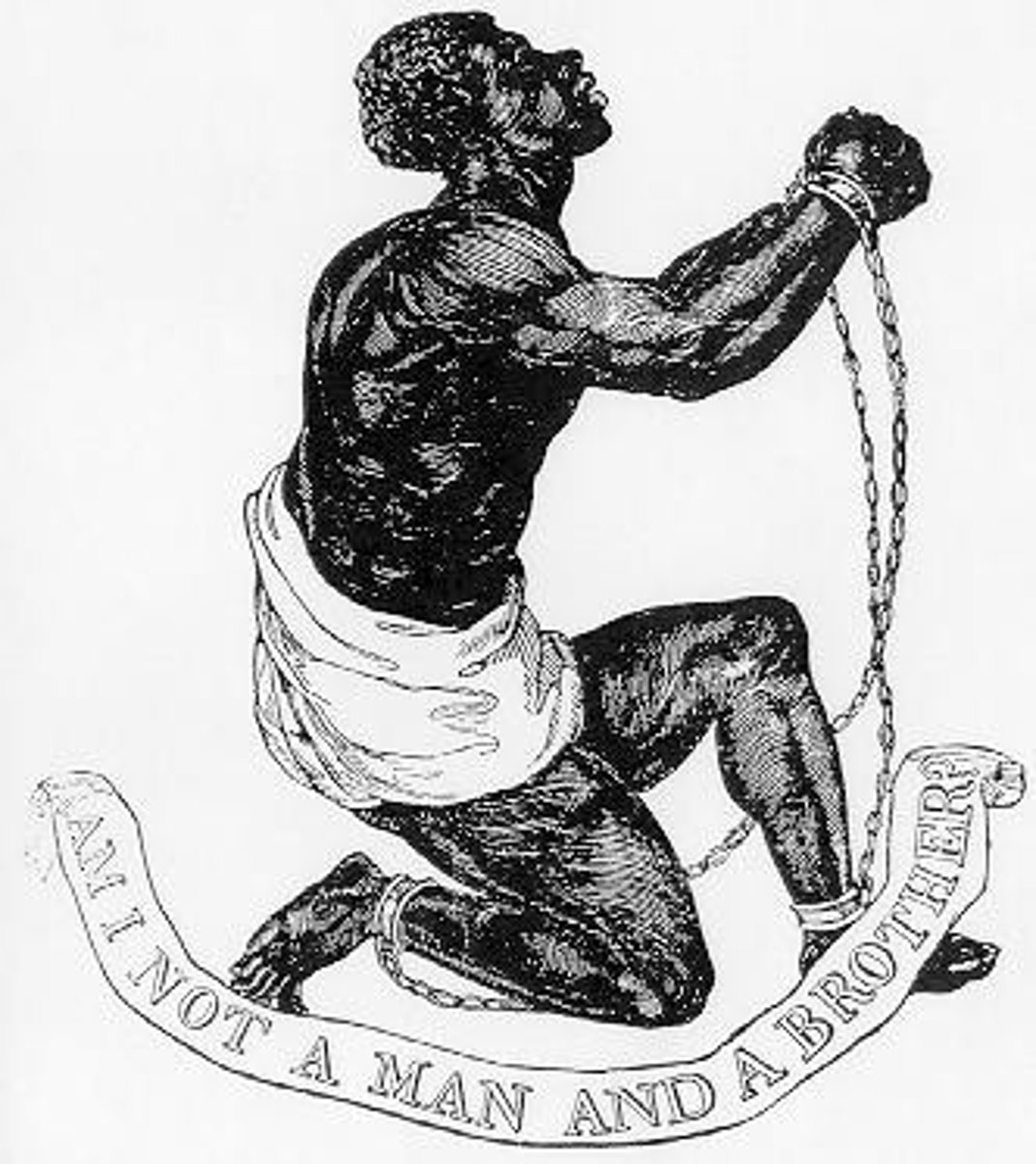
Horace Mann
(AJ) , late 1830s, MA, United States educator who introduced reforms that significantly altered the system of public education (1796-1859)
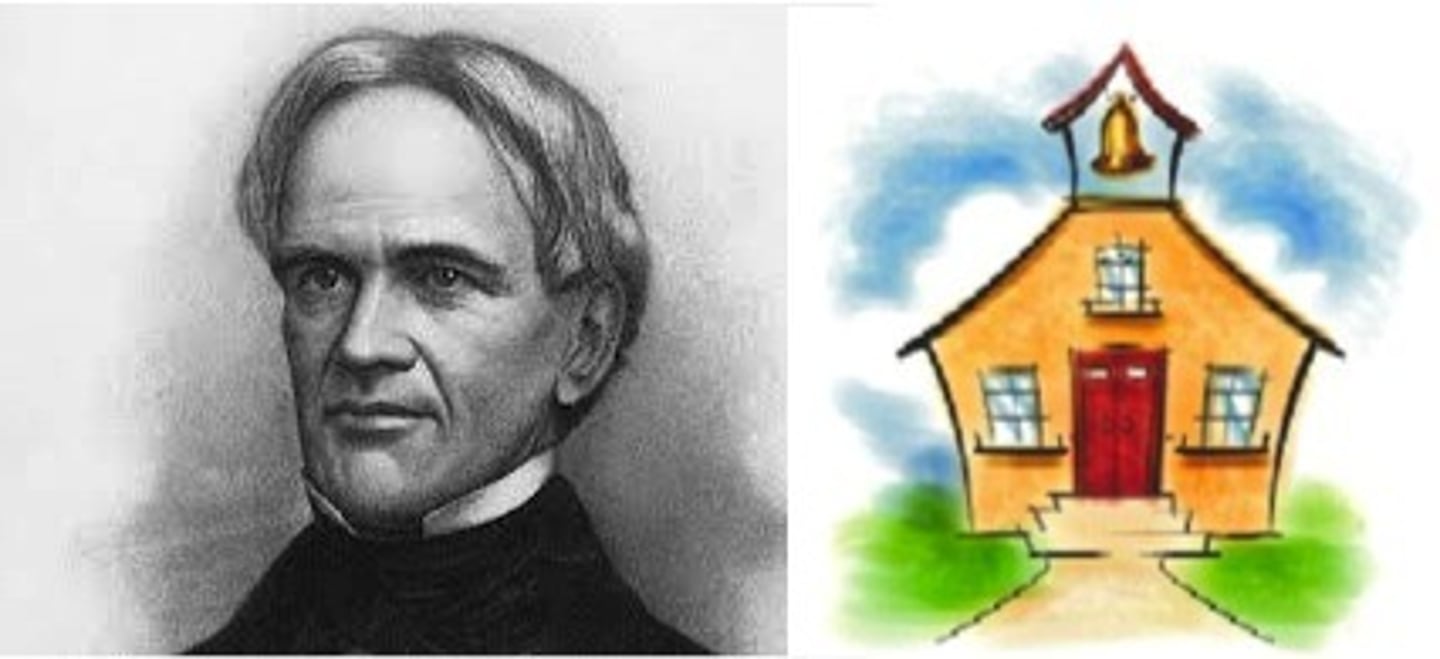
Dorthea Dix
Tireless reformer, who worked mightily to improve the treatment of the mentally ill. Appointed superintendant of women nurses for the Union forces.
William Lloyd Garrison
1805-1879. Prominent American abolitionist, journalist and social reformer. Editor of radical abolitionist newspaper "The Liberator", and one of the founders of the American Anti-Slavery Society.
Frederick Douglass
(1817-1895) American abolitionist and writer, he escaped slavery and became a leading African American spokesman and writer. He published his biography, The Narrative of the Life of Frederick Douglass, and founded the abolitionist newspaper, the North Star.
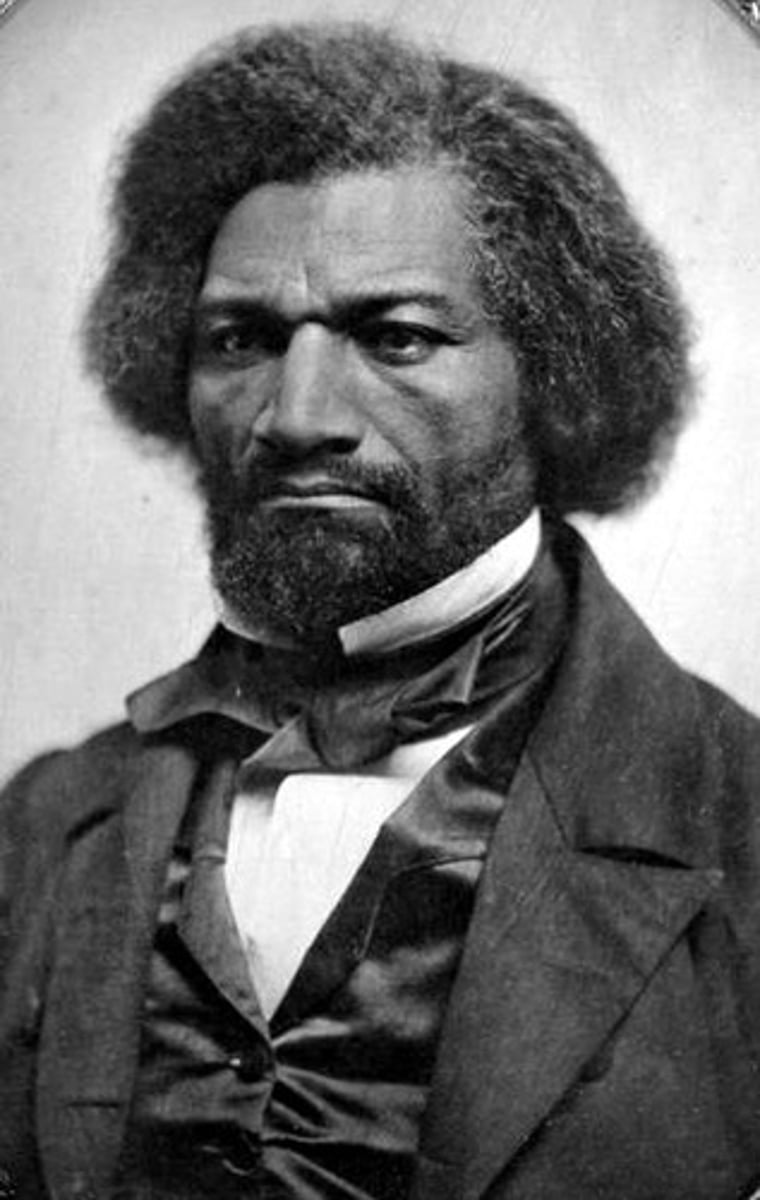
Antebellum
Belonging to a period before a war especially the American Civil War
Grimke Sisters
were 19th-century American Quakers, educators and writers who were early advocates of abolitionism and women's rights.
Lucretia Mott
A Quaker who attended an anti-slavery convention in 1840 and her party of women was not recognized. She and Stanton called the first women's right convention in New York in 1848
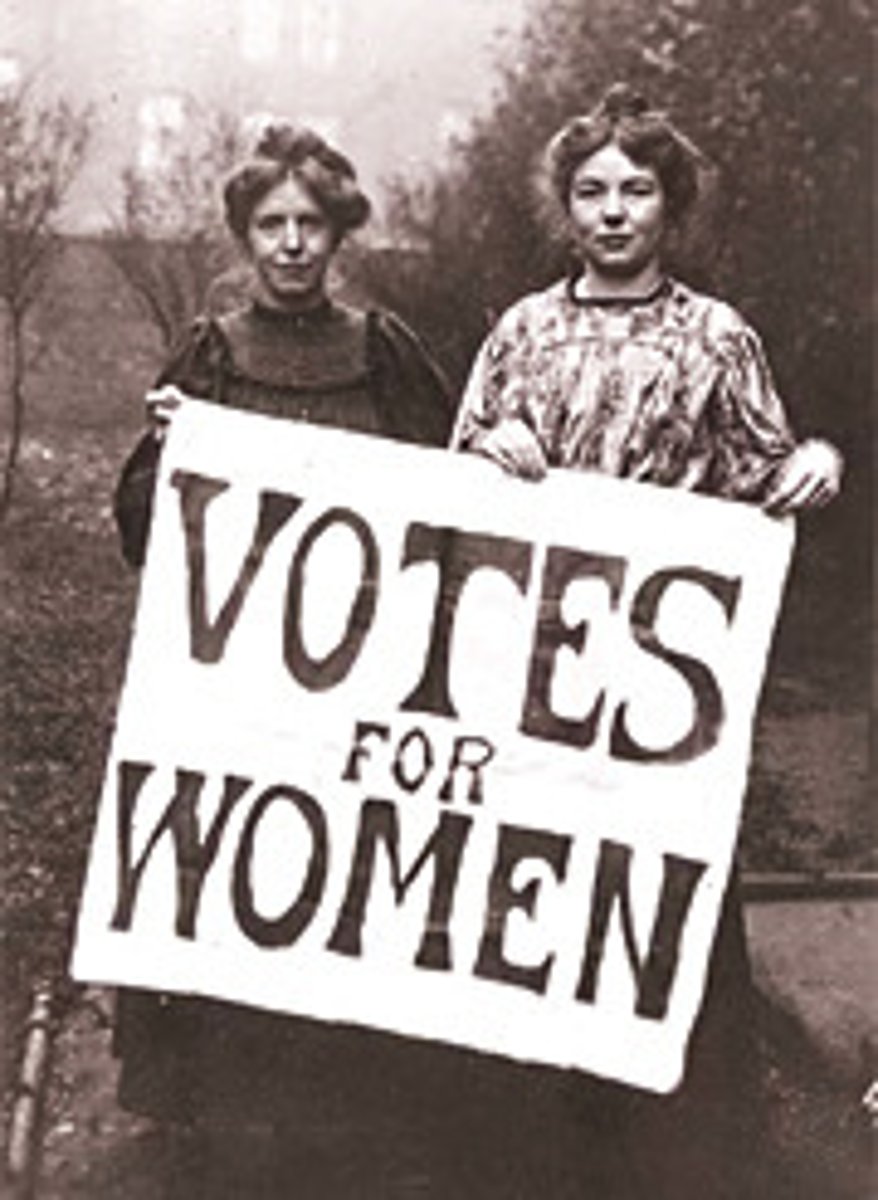
Elizabeth Cady Stanton
A prominent advocate of women's rights, Stanton organized the 1848 Seneca Falls Convention with Lucretia Mott
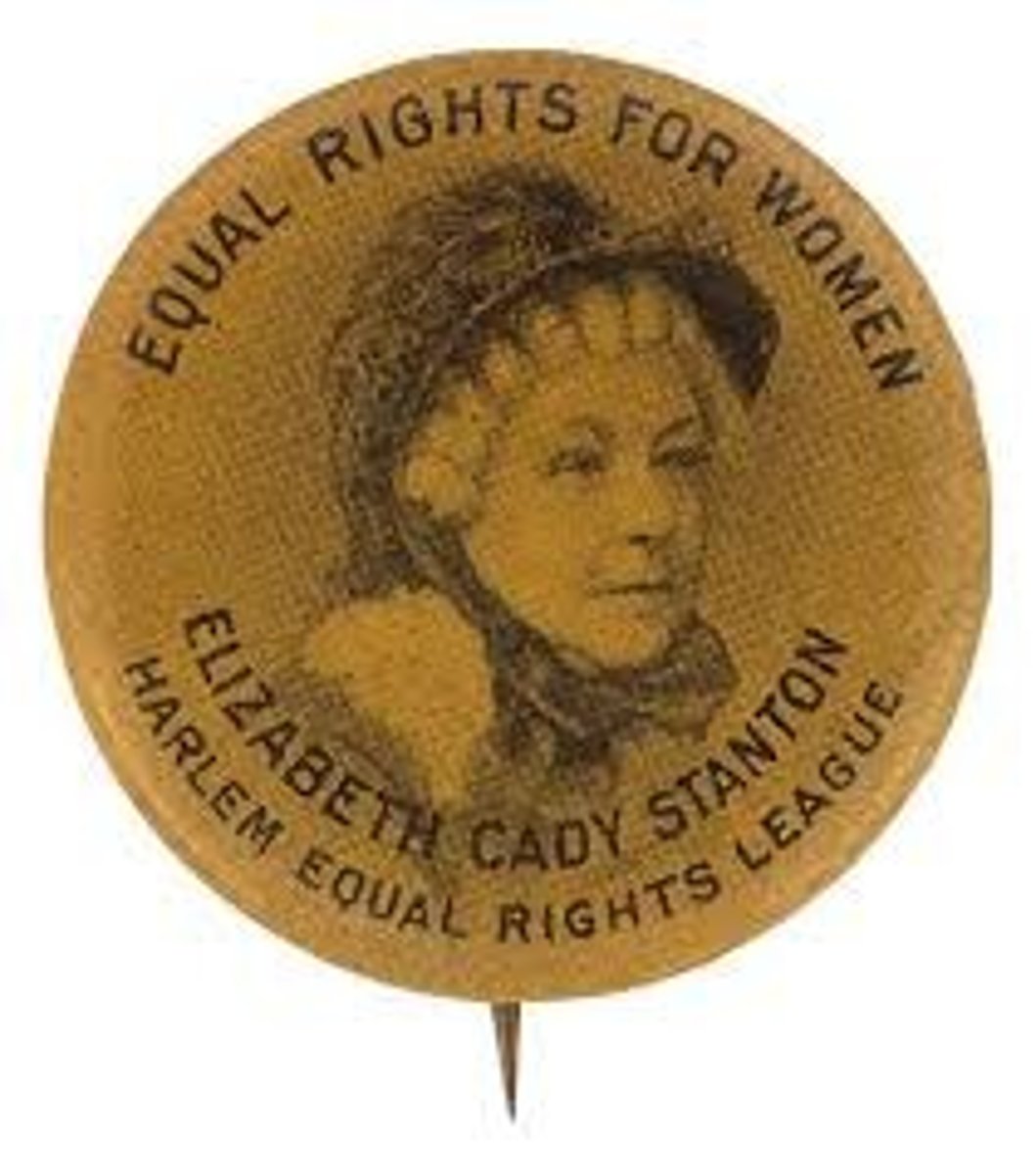
Susan B. Anthony
social reformer who campaigned for womens rights, the temperance, and was an abolitionist, helped form the National Woman Suffrage Assosiation
